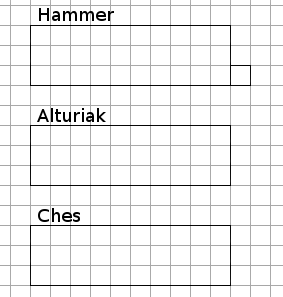Introduction
I've been playing table top RPGs for some twelve years now, both as a player and a frequent DM. During this time, I've had maybe half a dozen campaigns and none of them have been particularly accurate in regards to timeline and time management.
The problem
The problem revolves around keeping track of the smaller time frames in which events occur and, in extension, what else would occur during that time.
The bigger timeline (Year 2000: A happened, Year 2050: B happened, and so forth) is quite easy to keep track of, since most campaign (at least the ones I've played) take place within a year or so. The problem I have is keeping track of the day-to-day timeline.
Example
The PARTY sets off by foot from TOWN1, through the FOREST, before intending to reach TOWN2. This journey is estimated to take one week. Now, before they left TOWN1, the WOODELF sent a message via raven, asking his siblings to meet up with them in FOREST. Furthermore, two nights before leaving, PARTY burglarised a corrupt ARISTOBRAT and stole THINGY1. ARISTOBRAT wants THINGY1 back and has sent out nationwide messages, alerting local authorities of the theft and PARTY's description.
Halfway through FOREST, PARTY is ambushed by a band of villains, resulting in a long (play-time-wise) fight and once PARTY is victorious, the GROUP decide to call it a night.
Next time GROUP gets together, it's hard remembering how long the journey was going to take, how long PARTY had been travelling for, how long the raven would take to get to WOODELF's siblings, when ARISTOBRAT's message will reach various cities and holdfasts and what the result of that may be. The timeline, and thus potentially the campaign, gets messed up.
Question
Is there a quick, easy-to-use and flexible method, application or other service that can help me keep track of the timeline of a campaign?
Notes
- I've tried writing it down in a notebook or word document. It easily becomes gibberish, and/or disappears among all other notes. Word document is easier, but disrupts the game flow (Wait, I have to write this down. Hang on, let me find the right document. Oh, damn, computer is laggy).
- The answers to this question suggests either not bothering with it (which I obviously want to do) or using counters which I think works splendidly for keeping track of time passing, but not as much on keeping track of when along the timeline a given event occurred. thanks to @BESW for the question
- This question relates to keeping track of events that occur regularly, with an even spread on the timeline, which is not the case for my question, as it relates more to creating and managing a detailed timeline of events that occur, pardon my lack of sophistication, willy-nilly. thanks to @BESW for the question


